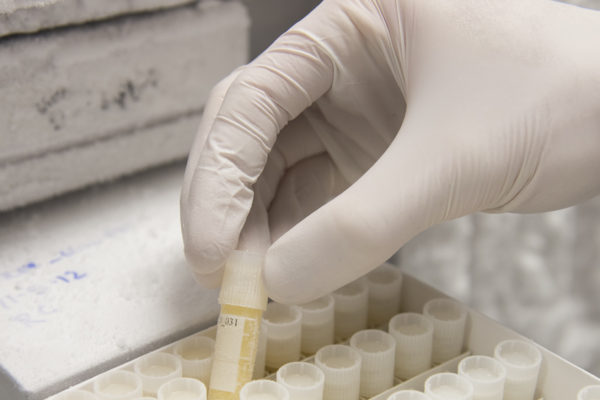A person’s diet, acidity of urine may affect susceptibility to UTIs
The acidity of urine — as well as the presence of small molecules related to diet — may influence how well bacteria can grow in the urinary tract, a new study shows. The research, led by Jeffrey Henderson, MD, PhD, at Washington University School of Medicine in St. Louis, may have implications for treating urinary tract infections, which are among the most common bacterial infections worldwide.
In mice, vaccine stops urinary tract infections linked to catheters
The most common type of hospital-associated infection may be preventable with a vaccine, new research in mice suggests. The experimental vaccine, created by School of Medicine researchers, prevented urinary tract infections associated with catheters, the tubes that hospitals and other care facilities insert to drain urine from the bladder.
Painkillers may decrease susceptibility to recurring urinary infections
Women plagued by repeated urinary tract infections may be able to prevent them with help from over-the-counter painkillers, new research in mice shows. School of Medicine scientists found that inhibiting an immune protein that causes inflammation eliminated recurrent urinary tract infections in mice.
Antibiotics prevent some hospital UTIs
Urinary tract infections are among the most common infections acquired in hospitals, with most linked to the use of catheters. New research suggests that some urinary tract infections could be prevented if patients receive an antibiotic at the time they have a urinary catheter removed.
Discovery helps mice beat urinary tract infections
Scientists at Washington University School of Medicine
in St. Louis have found new clues to why some urinary tract infections
recur persistently after multiple rounds of treatment. Their research, conducted in mice, suggests that the
bacteria that cause urinary tract infections take advantage of a
cellular waste disposal system that normally helps fight invaders.
Immune system overreaction may enable recurrent urinary tract infections
The immune system may open the door to recurrent urinary tract infections (UTIs) by overdoing its response to an initial infection, researchers at Washington University School of Medicine in St. Louis have found.
Bacterial target may be ideal for new drug treatments
E. Coli (yellow) attaches to a host cell using sticky fibersNew insights into the bacteria responsible for urinary tract infections appear to open up an opportunity for disabling a wide range of infectious bacteria. Researchers at the School of Medicine recently revealed how a protein known as PapD helps E. coli assemble sticky fibers called pili that allow the bacterium to latch onto and infect host cells. Scientists are using what they’ve learned to begin designing pilicides, new treatments that stop pili formation and disrupt the infection process.
Bacterial target may be ideal for new drug treatments
E. Coli (yellow) attaches to a host cell using sticky fibersNew insights into the bacteria responsible for urinary tract infections appear to open up an opportunity for disabling a wide range of infectious bacteria. Researchers at the School of Medicine recently revealed how a protein known as PapD helps E. coli assemble sticky fibers called pili that allow the bacterium to latch onto and infect host cells. Scientists are using what they’ve learned to begin designing pilicides, new treatments that stop pili formation and disrupt the infection process.

